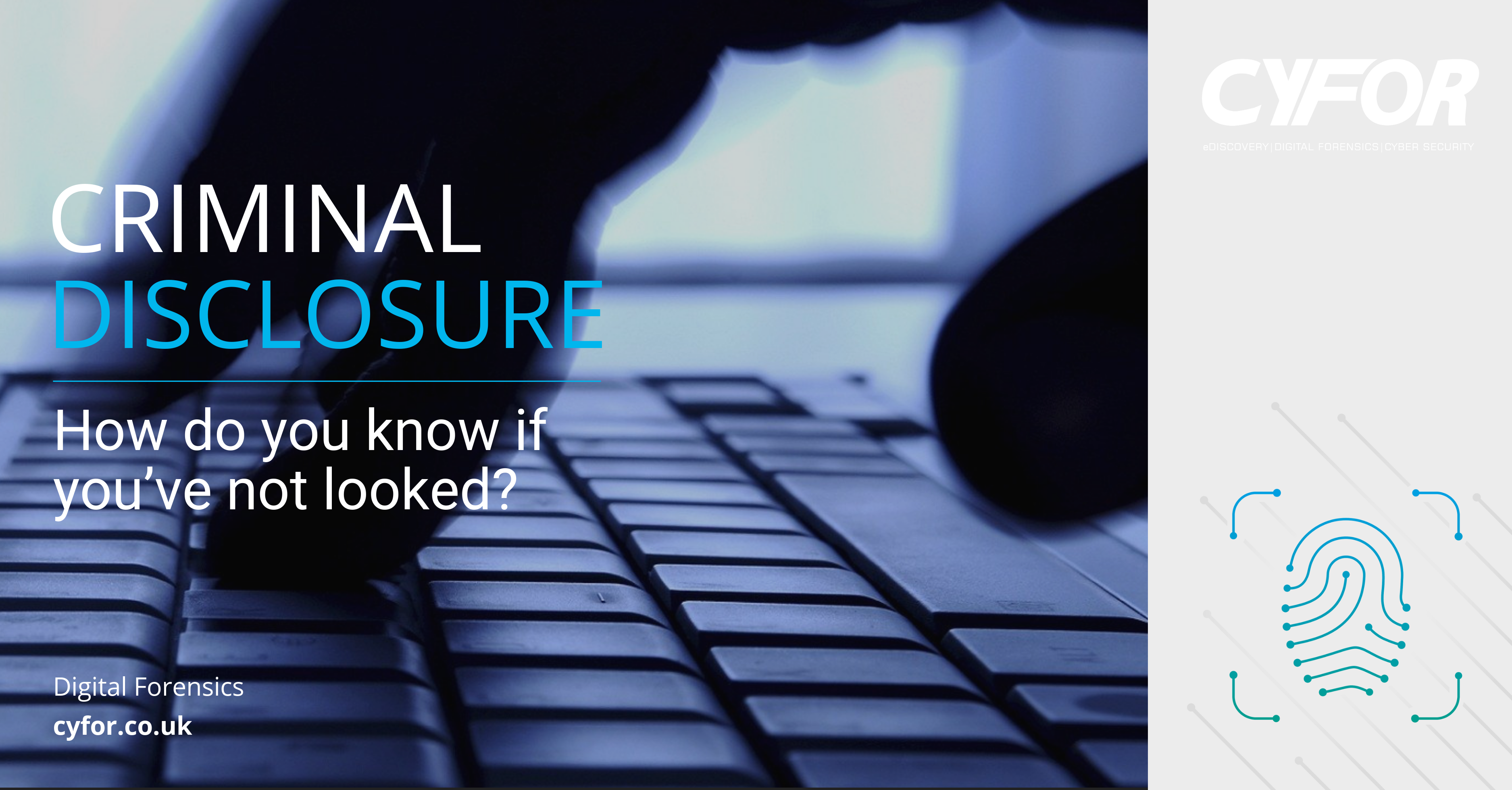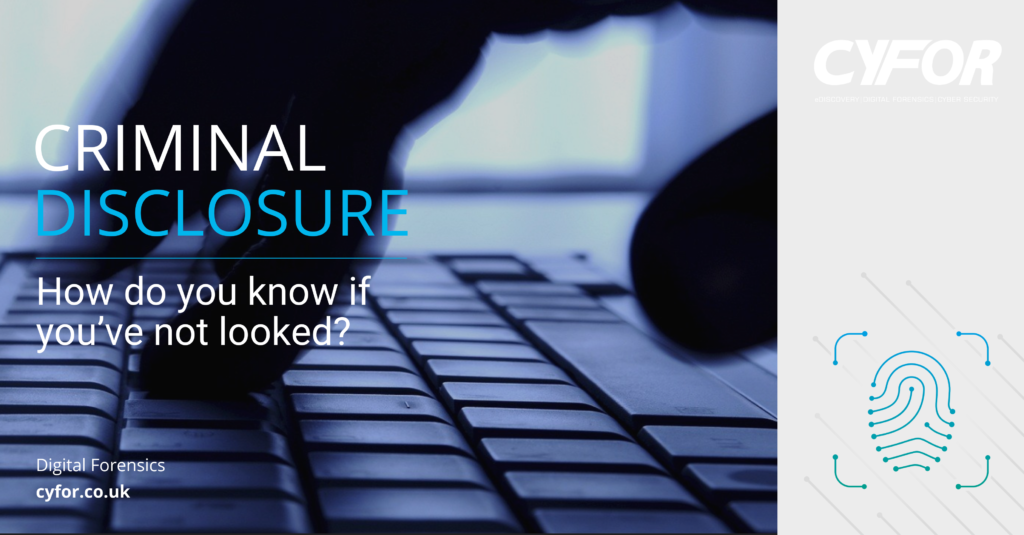Criminal disclosure: How do you know if you’ve not looked?

Criminal disclosure: How do you know if you’ve not looked?

Okay, you’ve read the stories; heard the news and are probably now sick of the sight and sound of this phrase, so why do we continue to have issues surrounding criminal disclosure?
CYFOR experts Matt Lashley and Dan Sutton hail from a law enforcement background and have given their take on the current criminal disclosure situation. With experience from both a prosecution and defence perspective, they’re are all too familiar with the time constraints and pressures set upon the police due to lack of resources and the ever-growing amounts of data.
Matt Lashley – Head of Investigations
In my opinion, within law enforcement, there are two main concerns:
Firstly, data storage capacity. In the ever-growing world of mobile phone technology, it has never been more important to conduct a thorough investigation into the contents of a mobile device. However, each year we see the addition of multiple new platforms and significant growth within device storage capacity. This makes extracting and effectively reviewing the data a complex and time-consuming process. Officers rarely get the spare few weeks needed to effectively examine the contents of a device, and barely any have the adequate training which is essential when performing the searches correctly.
Secondly, they need to move away from the old-school mindset of ‘us and them’. Officers still see defence experts on the ‘dark side’ and fail to disclose material in order to frustrate them. I was recently told of a comment made by a major incident disclosure officer. When asked their opinion on a criminal disclosure request, they replied ‘it’s our job to the make it as difficult as possible for the defence’.
Really!? Have you not heard of all the cases being dismissed due to late or inadequate disclosure? And this is not a dated subject. Today, whilst browsing LinkedIn, I read yet another example from UK defence lawyer Emma Tingling:
“The prosecution kindly served us with 62,000 pages of the co-defendant’s phone download 4 days before the trial…”
It would appear from this case that either the material was served late and wasn’t reviewed or was purposely withheld as its contents undermined to prosecution’s case. Investigators must understand that the defence deserves a level playing field. If they stop seeing them as the opposition or ‘the bad guys’ and start to appreciate their role, it could quickly eradicate some unnecessary errors.
Dan Sutton – Head of Cell Site, Digital Media Investigators and Mobile Phones
In some cases, potential evidence was being disregarded, as it would take weeks to obtain a forensic download of a mobile device. It is not uncommon for arrangements to be made to bring devices in at a more appropriate time; leaving potential evidence in the hands of victims or witnesses for longer than necessary. You could argue that this amounts to a breach in their statutory duty to seize available evidence at the time, as we are all too familiar with how easy it is to edit or delete the data.
That is why instructing an expert – who has the time, knowledge and resources – to deal with large amounts of data is of huge importance. There are few legitimate reasons for not gathering digital evidence. If you don’t know what is on the device, how can you decide whether it is of any relevance, or, whether undermines your case?
How many of us know how many times we interact with our mobile devices over the course of a day? Bearing in mind Locard’s theory ‘every contact leaves a trace’, your mobile device potentially holds a wealth of information and could be an investigative goldmine.
In a recent post by criminal barrister Mary Aspinall-Miles, she states that “electronic evidence needs to be made available electronically to both parties, subject to appropriate privacy and retention policies. Criminal disclosure has always been of importance; however, we find that not all sides are using the tools available to them, to make this process more manageable”.
At CYFOR we can do just that. We can process huge amounts of data, in a timely manner, in a way that is transparent and can be shared on our Relativity online review platform. With the right authorities in place, we can take the pain out of data processing and leave more time for the investigators to investigate.
Call us today and speak with a Forensic Specialist
Send an enquiry to our experts
After submitting an enquiry, a member of our team will be in touch with you as soon as possible
Your information will only be used to contact you, and is lawfully in accordance with the General Data Protection Regulation (GDPR) act, 2018.